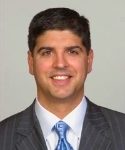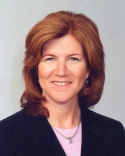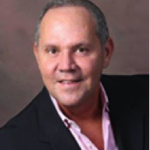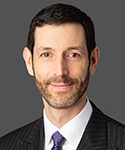By Hector A. Chichoni
Many of us, Latino members of the legal profession, just like anyone else, have different reasons as to why we decided to go to law school. However, for us the decision to become lawyers has always included a deep desire of being involved in work that helped improve our community and our people. For some, this desire has led them to work in the more “traditional” ways by pursuing and advocating for social justice, or in public defense, or in community advocacy to promote, protect, defend, and enhance our community. Continue reading “Celebrating Our Hispanic-Latino Heritage: Perspectives on Using Our Legal Skills to Promote, Protect, Defend, and Enhance Community Culture and Values in Difficult Times”
Celebrating our Hispanic-Latino Heritage: Perspectives on Using our Legal Skills to Promote, Protect, Defend, and Enhance Community Culture and Values in Difficult Times
By Miguel A. Quintana
With its vast territory and with millions of people immigrating over the past centuries, the United States is a culturally diverse country. One of the largest groups that has immigrated to the United States is that of the Hispanic-Latino group, which refers to those coming from Latin American countries.
In recent times, the United States has witnessed an increment of Hispanic-Latino immigrants. Consequently, the Hispanic-Latino culture has continued to grow in this country, and it has become one of the largest groups across its territory. Continue reading “Celebrating our Hispanic-Latino Heritage: Perspectives on Using our Legal Skills to Promote, Protect, Defend, and Enhance Community Culture and Values in Difficult Times”
Harvey Milk’s Ideas about the Power of Coming Out Still Hold True Today
Every gay person must come out. As difficult as it is, you must tell your immediate family. You must tell your relatives. You must tell your friends if indeed they are your friends. You must tell the people you work with. You must tell the people in the stores you shop in. Once they realize that we are indeed their children, that we are indeed everywhere, every myth, every lie, every innuendo will be destroyed once and all. And once you do, you will feel so much better.
Harvey Milk, 1978, available here.
Harvey Milk spoke these words in 1978, in a speech celebrating the defeat of Proposition 6 in California. Prop. 6 would have prohibited LGBT people from teaching in public schools. Ultimately, a wide coalition of leaders— from Jimmy Carter to Ronald Reagan— joined Harvey Milk in condemning the measure. It went down to overwhelming defeat. Today, it is a credit to Harvey Milk and countless others that it is unthinkable that such a proposal could make it to the ballot. Continue reading “Harvey Milk’s Ideas about the Power of Coming Out Still Hold True Today”
The Long and Winding Road to Workplace Equity in New Jersey
While New Jersey may be one of the smaller states in the nation, it does not shy away from being on the forefront when it comes to protecting the rights of its workers and citizens. Over the last decade, New Jersey has taken many steps to advance the rights of those who are diverse. This look in the rearview mirror highlights some of the Garden State’s efforts: Continue reading “The Long and Winding Road to Workplace Equity in New Jersey”
What Being a Hispanic/Latino Means to Me and How It has Influenced My Working and Personal Life
This blog post features a compilation of narratives from Duane Morris staff members in celebration of Hispanic Heritage Month.
The Power To Do Something
 By Anastasia N. Kaup
By Anastasia N. Kaup
Recently, I had the pleasure of speaking with a male “C-suite” officer at a prominent investment fund, with whom I’ve worked for years. Among other topics, our conversation touched on diversity and inclusion, and on that topic, the officer said: “we’ll never improve diversity and inclusion numbers in business or law unless those who are in positions with the power to do something, actually do something, to support others who are diverse or women.” That comment really struck a chord with and inspired me, and I couldn’t agree more. Continue reading “The Power To Do Something”
We Must Not Overlook Recent Historic Diversity Milestones
During the pandemic, it is so hard for us to stay connected and focused, much less remember what day of the week it is. Some, like myself, seem like we are glued to our screens, working away, and have little time to look up and focus on what is happening outside of our isolated home offices. That’s why I feel we have to step back, take a breath, and really internalize and absorb some of the historic diversity milestones that have occurred just recently over the last month, and not let the coronavirus and our collective isolation divert our attention away from these history-making milestones: Continue reading “We Must Not Overlook Recent Historic Diversity Milestones”
Representation Matters and It’s Good Business
When I started my legal career at a small firm over 25 years ago, I had trepidations over whether I could be myself and practice law. Would partners want to work with me? Would clients? I had come out of the closet before going to law school and was even a member of the law school’s LGBT law student group. I didn’t want to be back in the closet at work, but I was also afraid to be fully out. Continue reading “Representation Matters and It’s Good Business”
Federal Law Protects LGBT workers from Discrimination
 By Eve Klein
By Eve Klein
Today SCOTUS ruled in a 6-3 decision addressing three pending similar cases that discrimination against an employee because of their sexual orientation or gender identity is indeed discrimination because of their sex prohibited by Title VII. The Court explained that at the very heart of a decision to deny employment to a person because they are gay is the employer’s reliance on the fact that they are attracted to the same gender as their assigned gender at birth. If a man is attracted to a man that is problematic but if that man was a woman attracted to a man then the employer would have no issue and no adverse employment action would result. As such, it is the individual’s assigned gender that is determinative or the “but for” cause of their discharge. The same analysis applies to gender identify. If an employer finds a female employee’s display of masculine traits objectionable but not a male employee’s display of those same traits objectionable, the basis of the objection comes down to the employee’s assigned gender.
The majority rejected key dissent arguments such as that the 1964 legislature did not intend Title VII to include sexual orientation and gender identity given the state of the times, the lack of explicit reference to these characteristics and repeated efforts over the years to amend Title VII to include them. However, the Court explained that none of these points are relevant on the ground that Title VII’s prohibition of discrimination against any individual because of their sex is broad, clear and unambiguous, requiring no legislative history, express inclusion or analysis of subsequent legislative actions.
The upshot of this decision will be felt more acutely in those states and localities that do not ban discrimination based on sexual orientation and sexual identity. Currently, slightly less than half of all states and approximately 400 jurisdictions prohibit discrimination based on sexual orientation and/or gender identity.
What Being an Asian American Means To Me? It’s All About Family . . .
 By Neville M. Bilimoria
By Neville M. Bilimoria
As an individual born in the United States to parents who were born and raised in India, I take a lot of pride in the sacrifices and hard work of my parents who made my life possible here in the U.S.
My father was born in a small town north of Mumbai called, Bilimora, where I get my last name. It is more of what we call today, a village, with no paved roads and for a while, no running water. He lived in poverty in that town and grew up sometimes shoeless and hungry with his parents and brother and sisters. Early on, amidst the stench of squalor and almost hopelessness in that village, he had a hard work ethic and he studied very hard. His hard work paid off, earning him a rare Tata Scholarship that allowed him to exit India, travel abroad, and obtain a scholarship to study in the U.S. At that time, only 10 Tata scholarships were awarded in the entire country of India. My father worked and studied very hard to obtain that notable award, and gain freedom outside of his small village to encounter new and exciting opportunities in the United States.
My dad studied and worked very hard at Tennessee University and Roosevelt University, earning many advanced graduate engineering and managerial degrees, only to land a highly sought after job working for General Electric Company for 35 years as a manager of refrigeration and range in Chicago. At one point he oversaw a busy manufacturing plant in Cicero, Illinois, just outside Chicago, where he managed over 16,000 employees. He brought my mom over from Mumbai in 1965 and my brother and I were born here in the U.S. shortly thereafter.
As wonderful a story as it was, and one that I am thankful for every day, my dad did experience discrimination during his time here, especially in the late 1960s. My dad made it a point to keep his experiences private, perhaps to save us from the excruciating pain of discrimination, and to perhaps shield us as best he could from the darker side of the U.S. — our free country that he loved. Even when he died early in 2002 from a bout with prostate cancer, he never showed us or told us about his discrimination, though we knew he encountered it. He always tried to be brave for me and my brother, but we knew being brown skinned and in the U.S. most of his life that he did encounter discrimination.
For example, it was only recently that my mother told us of a story about my father when the movie Green Book came out. Travelling in Tennessee, my father entered a diner (nerdy and clueless) and waited for a long time to be served. Finally, seeing no one that would take his order, a patron walked up and said “we don’t serve your kind around here.” At that point my father, always embracing Gandhi’s anti-violence teachings, packed up and walked out of the diner.
Indeed, growing up in Chicago, I myself faced instances of hatred based on my ethnicity, often misplaced and mistaken. For example, as a young boy in Chicago, I experienced many folks in school (often older kids) telling me to go back to Iran, or calling me derogatory terms that didn’t even match my ethnicity. Many kids in school also called me “Dot head” or “Gandhi”. I didn’t think too much of it then, adopting my Dad’s philosophy of just focusing, studying hard, and choosing to turn the other cheek.
In this month of Asian Heritage, I now look back on those instances of discrimination, and posit to you that these horrible acts actually made me and my family stronger.
Looking back, I’m glad that kids made fun of me and called me Gandhi. In essence, they were honoring my father and his peaceful, hardworking way of life. And I just worked harder in school to honor my family.
In even these recent times of hate crimes, the one solace we all have is our family and each other. That sense of family will continue to drive Asian Americans through any tough times ahead.
*This series has been created to celebrate Asian Pacific American Heritage Month.










 By Mark Lerner
By Mark Lerner